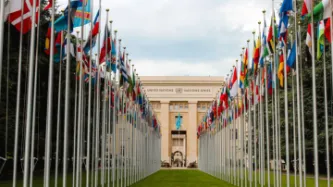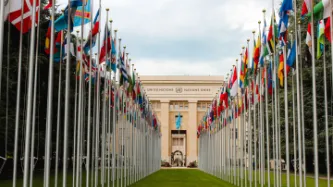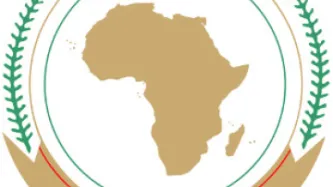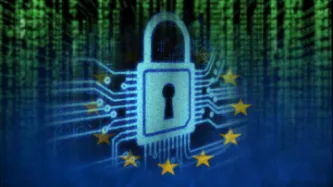Search
Content type: Long Read
In the UK, successive government ministers and members of parliament have made emotive proclamations about the malaise of "public sector fraud".
This year, former Work and Pensions Secretary Therese Coffey said that the welfare system "is not a cash machine for callous criminals and it’s vital that the government ensures money is well spent...[and] fraud is an ever-present threat."
In 2013, the UK's minister for the disabled made numerous claims that there were "vast numbers of bogus disabled […
Content type: Advocacy
Despite repeated recommendations by the UN Human Rights Council and the UN General Assembly to review, amend or enact national laws to ensure respect and protection of the right to privacy, national laws are often inadequate and do not regulate, limit or prohibit surveillance powers of government agencies as well as data exploitative practices of companies.
Even when laws are in place, they are seldom enforced. In fact PI notes how it is often only following legal challenges in national or…
Content type: Advocacy
International data transfers are an important feature of the present-day global economy. However, when crossing borders, data should also be accompanied by strong and effective privacy and personal data protections. Laws, such as the General Data Protection Regulation (GDPR), play an important role in ensuring data flows respect with privacy.
Trade negotiations that cover cross-border data flows can complicate this. All 80 countries that are part of digital trade negotiations should be able to…
Content type: Explainer
At first glance, infrared temperature checks would appear to provide much-needed reassurance for people concerned about their own health, as well as that of loved ones and colleagues, as the lockdown is lifted. More people are beginning to travel, and are re-entering offices, airports, and other contained public and private spaces. Thermal imaging cameras are presented as an effective way to detect if someone has one of the symptoms of the coronavirus - a temperature.
However, there is little…
Content type: Advocacy
Privacy International responded to the call for submissions on Zimbabwe’s Cyber Security and Data Protection Bill, 2019.
According to its Memorandum, the Bill seeks to “consolidate cyber related offences and provide for data protection with due regard to the Declaration of Rights under the Constitution and the public and national interest.” The Bill also proposes the establishment of a Cyber Security Centre and a Data Protection Authority.
In its submission, PI applauds the positive aspects…
Content type: Long Read
There are few places in the world where an individual is as vulnerable as at the border of a foreign country.
As migration continues to be high on the social and political agenda, Western countries are increasingly adopting an approach that criminalises people at the border. Asylum seekers are often targeted with intrusive surveillance technologies and afforded only limited rights (including in relation to data protection), often having the effect of being treated as “guilty until proven…
Content type: News & Analysis
GDPR was hard won. PI, together with other civil society actors, fought from the beginning for a version of the law that offers the strongest rights and protections in the face of intense industry lobbying.
Holding the hidden data ecosystem to account
Two years ago, we committed to using GDPR to seek to hold to account the hidden data ecosystem - those companies that amass and exploit large amounts of our data for profit.
Here’s some of the action we’ve taken:
In Nov 2018,…
Content type: News & Analysis
An estimated 90% of the world’s student population are affected by school closures in the Covid-19 pandemic. And, in the absence of physical space, education technology companies are stepping in to fill the gap. There are plenty of reasons to be excited about the potential of technology to provide support, but it’s important to consider the ongoing implications of which technology we choose, and the implications for those families who don’t have access to them in the first place.That’s why we’…
Content type: News & Analysis
A few weeks ago, its name would probably have been unknown to you. Amidst the covid-19 crisis and the lockdown it caused, Zoom has suddenly become the go-to tool for video chat and conference calling, whether it’s a business meeting, a drink with friends, or a much needed moment with your family. This intense rise in use has been financially good to the company, but it also came with a hefty toll on its image and serious scrutiny on its privacy and security practices.
While Zoom already had a…
Content type: Examples
On March 14, the Peruvian government set up a website for individuals to check their symptoms so they can be directed towards sources of help. The web form asks for ID number, phone, email and home address.
Source: https://www.gob.pe/coronavirus
Writer: Peruvian government
Publication: Peruvian government
Content type: Examples
The Indonesian Doctors Association has asked the government to open up the identity of patients who have tested positive for the novel coronavirus in order to facilitate contact tracing and improve the efficiency of efforts to prevent further spread, arguing that in an emergency like this the public will support the disclosure in the interests of safety.
Source: https://mediaindonesia.com/read/detail/296992-permudah-kontak-tracing-idi-dorong-pemerintah-buka-data-pasien
Writer: Atalya…
Content type: Examples
The first two confirmed cases of COVID-19 in Indonesia and their neighbours became the targets of media coverage and social media abuse after their personal details were spread via WhatsApp and other social media soon after the President announced the positive tests results - before anyone told the patients themselves. The Health Ministry denied responsibility for the data breach.
Sources:
https://www.thejakartapost.com/news/2020/03/04/covid-19-patients-become-victims-of-indonesias-lack-of-…
Content type: Long Read
Commercial interests seem to often overshadow the EU’s stance as a global privacy leader. After looking at Europes's shady funds to border forces in the Sahel area, Niger's new biometric voting system, and attempts to dismantle smugglers networks powered by Europe's gifts of surveillance, freelance journalist Giacomo Zandonini looks at the battle for data protection and digital rights in the continent.
What do a teenage labourer on a marijuana farm in Lesotho, a…
Content type: News & Analysis
On 30 January 2020, Kenya’s High Court handed down its judgment on the validity of the implementation of the National Integrated Identity Management System (NIIMS), known as the Huduma Namba. Privacy International submitted an expert witness testimony in the case. We await the final text of the judgment, but the summaries presented by the judges in Court outline the key findings of the Court. Whilst there is much there that is disappointing, the Court found that the implementation of NIIMS…
Content type: Long Read
By Valentina Pavel, PI Mozilla-Ford Fellow, 2018-2019
Our digital environment is changing, fast. Nobody knows exactly what it’ll look like in five to ten years’ time, but we know that how we produce and share our data will change where we end up. We have to decide how to protect, enhance, and preserve our rights in a world where technology is everywhere and data is generated by every action. Key battles will be fought over who can access our data and how they may use it. It’s time to take…
Content type: News & Analysis
Image was found here.
As part of Privacy International’s mission, we aim to take the issues emerging from our research and that of our partners to new spaces of debate and to the attention of stakeholders at the national, regional and international level.
In April 2018, Privacy International was able to engage for the first time with the African Commission on Human and People's Rights (ACHPR) at its 62nd Ordinary Session, which took place in Nouakchott, Mauritania.
The right to privacy does…
Content type: Advocacy
This stakeholder report is a submission by Centre for Internet and Society India (CIS India) and Privacy International (PI). CIS is a non-profit organisation that undertakes interdisciplinary research on internet and digital technologies from policy and academic perspectives. Through its diverse initiatives, CIS explores, intervenes in, and advances contemporary discourse and practices around internet, technology and society in India, and elsewhere. PI is a human rights organisation that…
Content type: News & Analysis
After the adoption of the EU General Data Protection Regulation, the Data Protection Directive for Law Enforcement Agencies, the EU-US Privacy Shield, your understandable EU privacy policy fatigue is excused.
But when a coalition of tech and telecom industries calls for a relatively obscure EU directive to be repealed, it may unintentionally trigger an atypical Streisand effect: if companies, which often so cavalier to individuals’ privacy, want to get rid of the EU e-privacy…
Content type: Advocacy
La Asociación por los Derechos Civiles (ADC) y Privacy International toman nota de las respuestas del gobierno de Argentina a la lista de cuestiones antes de la presentación del informe, en particular en relación a la legislación, políticas y prácticas relacionadas con la vigilancia y la protección de los datos personales.
Privacy International es una organización de derechos humanos que trabaja para favorecer y promover el derecho a la privacidad y la lucha contra la vigilancia en todo el…
Content type: News & Analysis
Over the next two weeks, the 25th session of the Universal Period Review Working Group will take place in Geneva. The Universal Period Review is a key mechanism of the UN Human Rights Council to remind UN Member States of their responsibility to respect and implement all human rights and fundamental freedoms.
Amongst others, Hungary, the United Republic of Tanzania, Thailand, and Ireland will be reviewed. Privacy International, in collaboration with national civil society…
Content type: News & Analysis
Privacy laws around the world are under threat by ambitious governments and voracious industry. Sixty-six privacy, digital rights and consumer rights organisations from around the world have joined forces to push back against attempts to weaken European privacy legislation. The coalition today wrote to the President of the European Commission (the civil service of the European Union) to demand that high levels of privacy protections must be respected in Europe's ongoing revision of its data…
Content type: News & Analysis
Court Of Appeal Tells UK Government That Criminal Records Bureau Checks System Breaches Human Rights
Yesterday the Court of Appeal delivered its judgment in the case of R (on the application of T) v Chief Constable of Greater Manchester & Others concerning the operation of the criminal records check system. The court was considering three cases that hinged on the same question: whether or not the blanket requirement on those applying for jobs involving contact with children and vulnerable adults (approximately four million people each year) to disclose all past convictions,…
Content type: Report
Following on from their 2009 discussion paper, in 2010 the European Commission published a Communication on changes to the 1995 European Union Directive on data protection. The European Union’s 1995 Directive on data protection is a leading regional instrument for privacy and is often the model for other countries across the globe. The Directive has been integral to pushing back against key surveillance and tracking initiaitives by governments and industry.
In this report we respond to that…






















